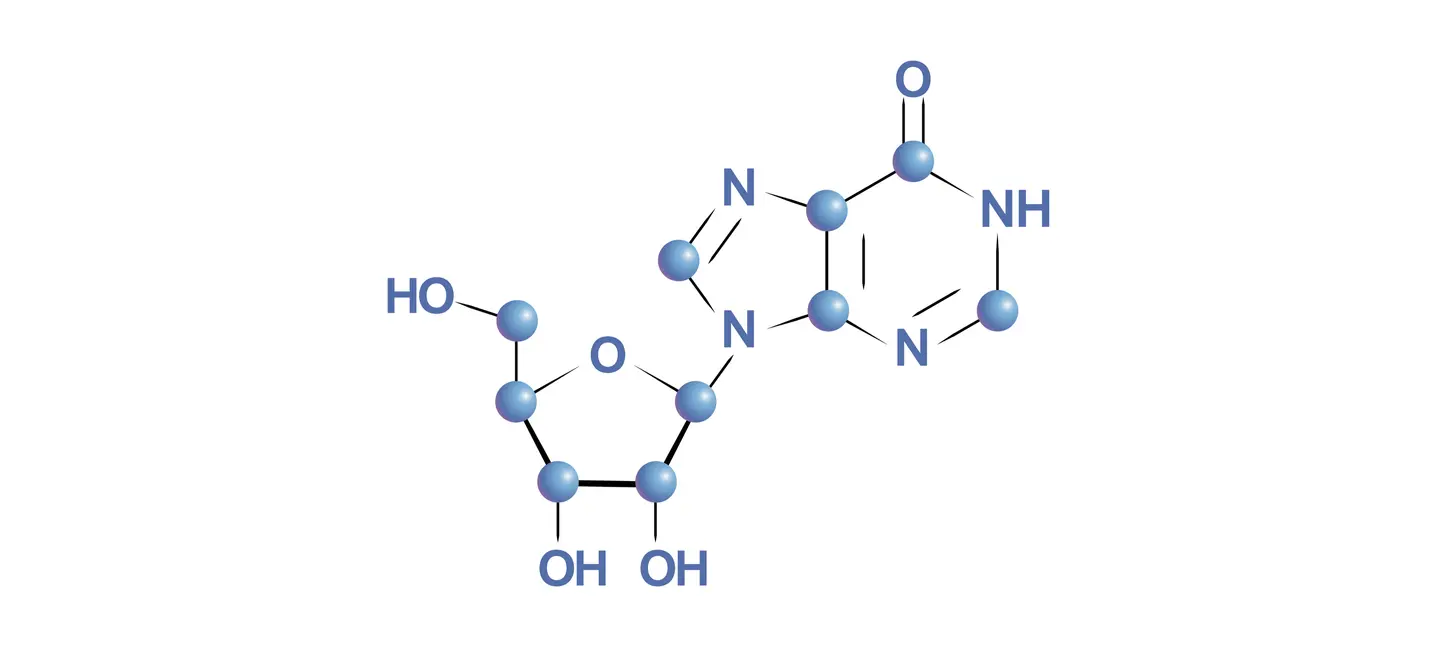
Inosine is a chemical that is found in RNA, which is present in all living cells. It can be made in a laboratory and is also used as medicine.
When people take inosine by mouth it is changed in the body to make a chemical called uric acid. Uric acid acts like an antioxidant and might protect cells in the brain.
People use inosine for Parkinson disease, multiple sclerosis (MS), athletic performance, and many other conditions, but there is no good scientific evidence to support these uses.
Is It Effective?
There is interest in using inosine for a number of purposes, but there isn't enough reliable information to say whether it might be helpful.
Is it Safe?
When taken by mouth: Inosine is possibly safe. Taking inosine can cause high levels of a chemical called uric acid in the blood and urine. This might cause kidney or bladder stones in some people.
Special Precautions & Warnings:
Pregnancy and breast-feeding: There isn't enough reliable information to know if inosine is safe to use when pregnant or breast-feeding. Stay on the safe side and avoid use.
Gout: Taking inosine might increase levels of uric acid. This might make gout worse in some people.
Medications for gout (Antigout Drugs)
Interaction Rating=Moderate Be cautious with this combination.
Inosine increases levels of uric acid. High levels of uric acid might make gout worse. Taking inosine along with antigout drugs might reduce the effects of these drugs.
There are no known interactions with herbs and supplements.
There are no known interactions with foods.
Inosine has most often been used by adults at a dose of 1-3 grams by mouth daily for up to 2 years. Speak with a healthcare provider to find out what dose might be best for a specific condition.
Hypoxanthine Riboside, Hypoxanthosine, Inosina, 2,3-Diphosphoglycerate, 6-9 Dihydro-9-B-D-ribofuranosyl-1H-puin-6-one, 9-B-D-ribofuranosylhypoxanthine.
Information on this website is for informational use only and is not intended to replace professional medical advice, diagnosis, or treatment. While evidence-based, it is not guaranteed to be error-free and is not intended to meet any particular user’s needs or requirements or to cover all possible uses, safety concerns, interactions, outcomes, or adverse effects. Always check with your doctor or other medical professional before making healthcare decisions (including taking any medication) and do not delay or disregard seeking medical advice or treatment based on any information displayed on this website.
© TRC Healthcare 2024. All rights reserved. Use and/or distribution is permitted only pursuant to a valid license or other permission from TRC Healthcare.
